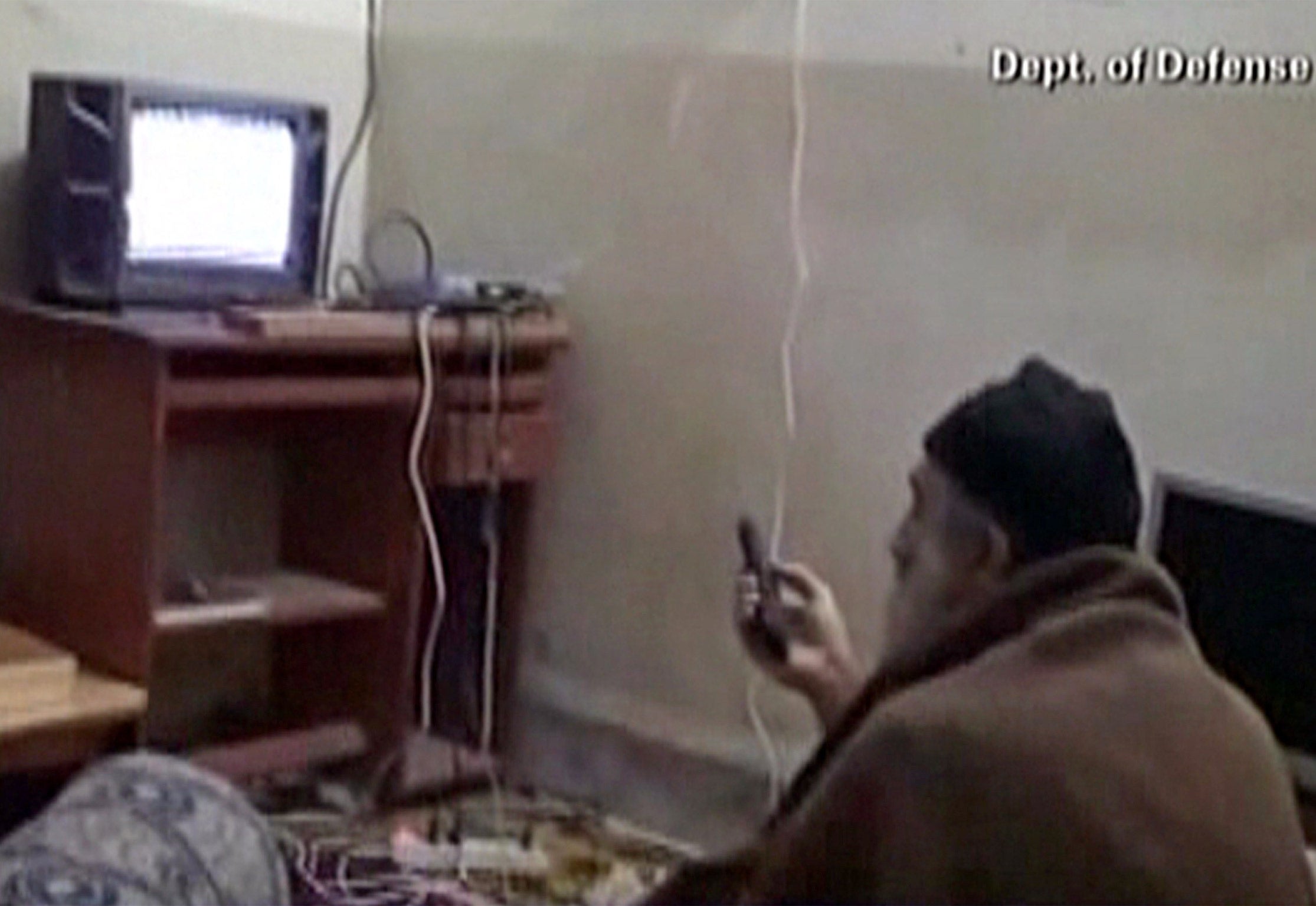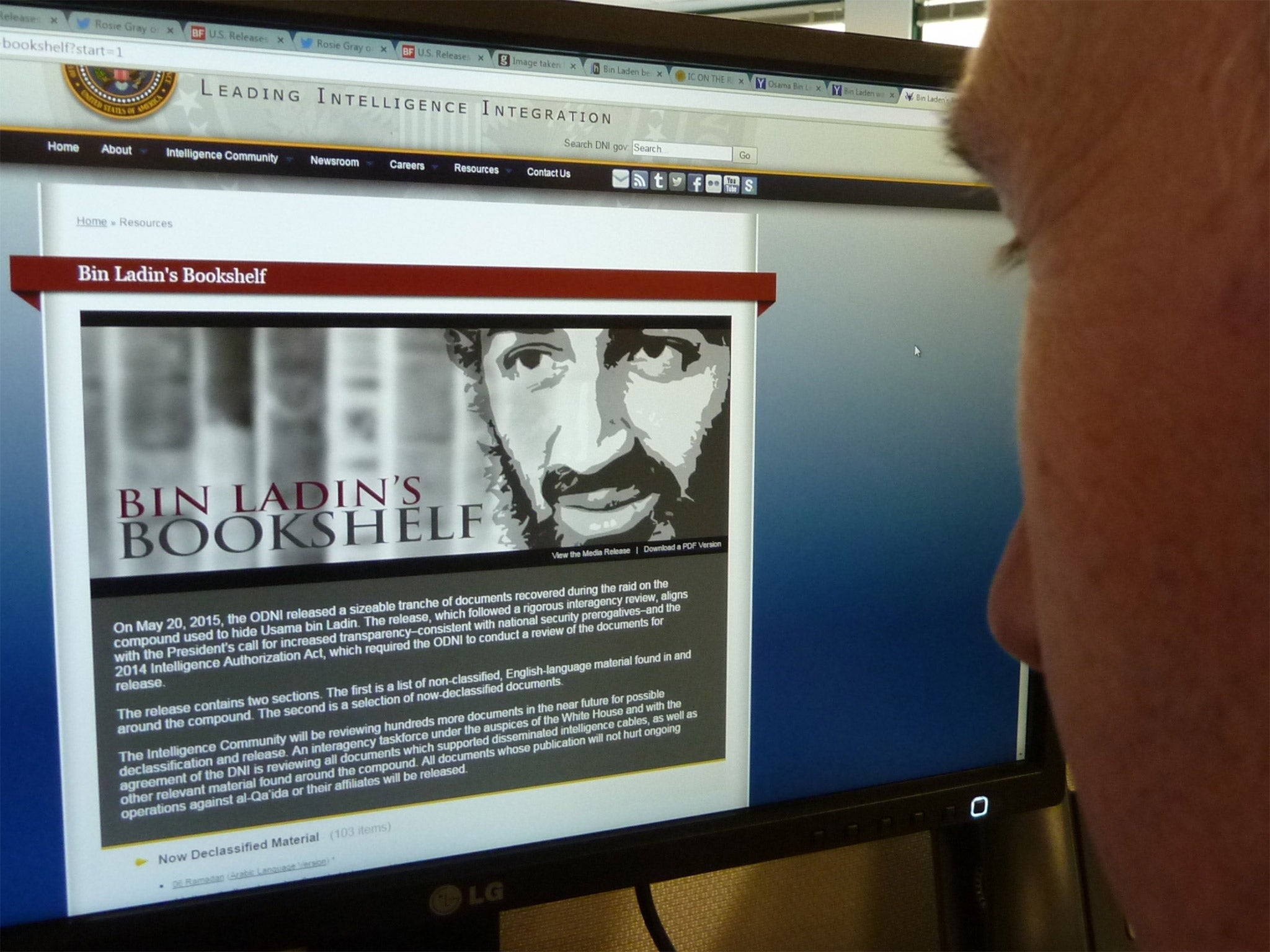Bin Laden's 'bookshelf' proves global terror leaders are just as boring and narcissistic as the rest of us
It's easy to assume that someone like Bin Laden lived in a more outdated and unrecognisable world, but the truth is far more surprising

On Wednesday the American government declassified some of the documents found in Osama bin Laden's compound before he was killed. Among this vital intelligence was a list of books, reports, manuals and press clippings, which the US Director of National Intelligence has published with the title "Bin Ladin's Bookshelf".
The title is misleading, because the books were all found in electronic formats. This raises important questions: Did Bin Laden have an e-reader? If so, which one – a Nook, a Kindle, an iPad? How did he get the books? Did he have an Amazon account? Did he pirate the books? Must we add copyright infringement to the list of his crimes? We can only hope that future declassifications will give us some answers.
With the evidence we have available, the obvious conclusion is that Bin Laden was both practical and narcissistic. The books are primarily concerned with modern geopolitics, the history of the war on terror, and counter-insurgency. They have titles like Al-Qaeda’s Online Media Strategies: From Abu Reuter to Irhabi 007 by Hanna Rogan and Hegemony or Survival: America’s Quest for Global Dominance by Noam Chomsky. This seems entirely natural: I can only hope that Bush and Blair also found the time to read a bit of Chomsky.

One book, Michael Scheuer's Imperial Hubris: Why the West Is Losing the War on Terror, describes Bin Laden as “the most respected, loved, romantic, charismatic and perhaps able figure in the last 150 years of Islamic history”. Awkward!
Others are works of conspiracy that claim that 9/11 was an inside job. It is hard to know what to make of this. Perhaps Osama had a keen sense of humour. Perhaps he thought conspiracy theories revealed something about American culture and American decadence. Perhaps he just liked reading about himself – I would read conspiracy theories written about me.
The most interesting sections of the list are entitled “Software & Technical Manuals” and “Documents Probably Used by Other Compound Residents”. These reveal the actual daily life of those in the compound, and offer glimmers of humanity and banality. There is a guide to nutrition, a walkthrough to a video game ("Delta Force Extreme 2"), a suicide prevention guide (Is It the Heart You Are Asking? by Dr. Islam Sobhi al-Mazeny), a resume, manuals for Adobe Acrobat, Encore, Media Recorder, Photoshop, Premiere, and ReadMe, for McAfee Virus Scan, for an HP Printer.
With the savagery of Islamist rhetoric and action, it is easy to imagine that they live in world that is more medieval, more morally rigid, and more technologically backwards than ours. Bin Laden's library of computer manuals reminds us of how false this idea is: Islamists, Jihadis, and fundamentalists of other sorts live in the same world as the rest of us. The idea that they are a kind of barbaric anachronism is false.
Equally, Bin Laden's bookshelf deflates another myth about Islamic terrorism: that it is fundamentally religious. Bin Laden's library is notably lacking in works of theology, with a few exceptions (including A Brief Guide to Understanding Islam). His focus was on politics and power, not religion. He did at least have a copy of the Koran, unlike Haji Bakr, the “architect of the Islamic State”.
But we should give his Koran no more importance than his HP Printer Owner’s Manual: both, in Bin Laden's hands, are tools to achieve some nefarious aim. As Mehdi Hasan argues, “To claim that Isis is Islamic is egregiously inaccurate and empirically unsustainable, not to mention insulting to the 1.6bn non-violent adherents of Islam across the planet.” Hasan emphasises the non-religious reasons why future terrorists might be radicalised – most notably the role of US foreign policy.
It is interesting, then, that Bin Laden's bookshelf was declassified in response to an article by Seymour M. Hersh about Bin Laden's killing. Hersh claims that Bin Laden was a prisoner of Pakistan and was assassinated by the US. Extra-judicial assassinations are exactly the kind of foreign policy that radicalises terrorists.
So maybe the important question is: what does this declassification tell us about the US government? The bottom of the DNI's webpage states that “The U.S. Intelligence Community does not endorse any of the publications on this list”. And if it can't endorse the HP Printer Owners' Manual, what is left for it to believe in? Although really I feel sorry for Chomsky; he must be devastated.

Join our commenting forum
Join thought-provoking conversations, follow other Independent readers and see their replies